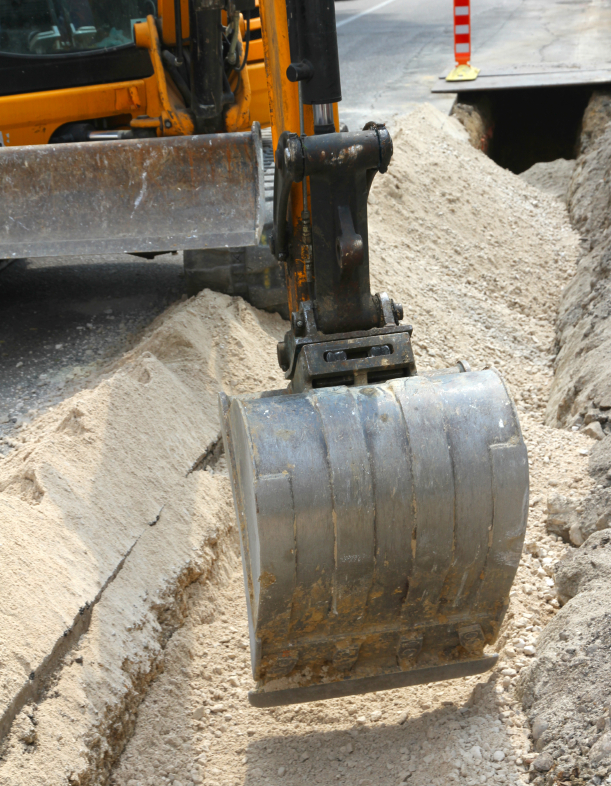
Hydro excavation is a “non-destructive process that uses pressurized water and an industrial-strength vacuum to excavate and evacuate soil.” As soil is broken up, soil and water are taken by a vacuum to a debris tank. Hydro excavation can save you lots of time and money, and is recognized as the easiest, most effective means of excavation.
The process of hydro excavation began in the mid-1800s. A steam pump with pressurized water was used to wear down land. It was a common practice among miners who were searching for gold in California.
In the 1970s and ‘80s, vacuum trucks were commonly used for hydro excavation.
Why is Hydro Excavation the Better Way to Excavate the Ground?
Consider construction sites for a moment. They can be very dangerous. But with hydro excavation, you can dig and get rid of debris without affecting the surrounding area. The process is extremely precise and accurate. In the old days, the site would have to be restored after all the damage that was caused by using backhoes to do manual digging, with great upheaval of dirt and debris. To restore the site required more labor, more time and more money. And never mind the greater dangers posed by manual digging. What if you hit a power line, for instance?
The process of hydro excavation is also very helpful in locating underground utilities. When a site is being prepared for a new construction, it’s important to know where the existing utilities are—electrical wires, pipe lines, etc. Hydro excavation allows the contractors to dig accurately to check if the lines and pipes are in good condition, and it reduces the number of accidents.
Digging and moving the soil can be a messy, intrusive business. But this process allows you to check on the quality of lines and pipes without damaging them. Best of all, the process of hydro excavation is faster than traditional methods.
Landscaping companies benefit from hydro excavation because it’s more precise in helping to arrange plantings and even trees with deep root systems.
Why Do More Industries Use Hydro Excavation?
In addition to saving time and money, underground utilities may need to be moved, inspected or installed without damaging them or the surrounding area. An hydro excavation can achieve that. Underground there are phone lines, fiber optic lines, utility cables, pipe lines and other elements that you wouldn’t want to damage. More industries choose hydro excavation to prevent unnecessary damage to existing systems.
VacTone Uses Hydro Excavation
At VacTone, we have self-contained trucks that do the digging safely and swiftly. Special rotating nozzles vacuum the soil sludge (slurry) through an eight-inch vacuum line into a debris tank that’s dumped at the end of the day. Our machines are able to go around pipelines, cables and other underground utilities. Then the sludge is collected in the tank on the truck. Once it’s full, the vacuum automatically shuts off. Usually, what is collected is only dirt and water, which goes to a dirt landfill for disposal.
At oil, gas or chemical plants, there is a chance that the sludge may contain contaminated or toxic material. In that case, there is a dump site within the facility that is specifically for the safe disposal of hazardous material. Our contractors would then ensure that the material is disposed of at the facility where the hazardous sludge was uncovered.
Working with VacTone
This kind of process requires professionals who are specially trained. VacTone operators are trained for safety, as well as in dealing with hazardous material.
VacTone Environmental Services provides this service, along with industrial wet and dry vacuuming, stormceptor maintenance, catch basin cleaning and inspection, and many other maintenance and prevention services, which can help your business continue to thrive. Contact us to learn more.
VacTone Environmental Services, serving Massachusetts and southern New Hampshire.
